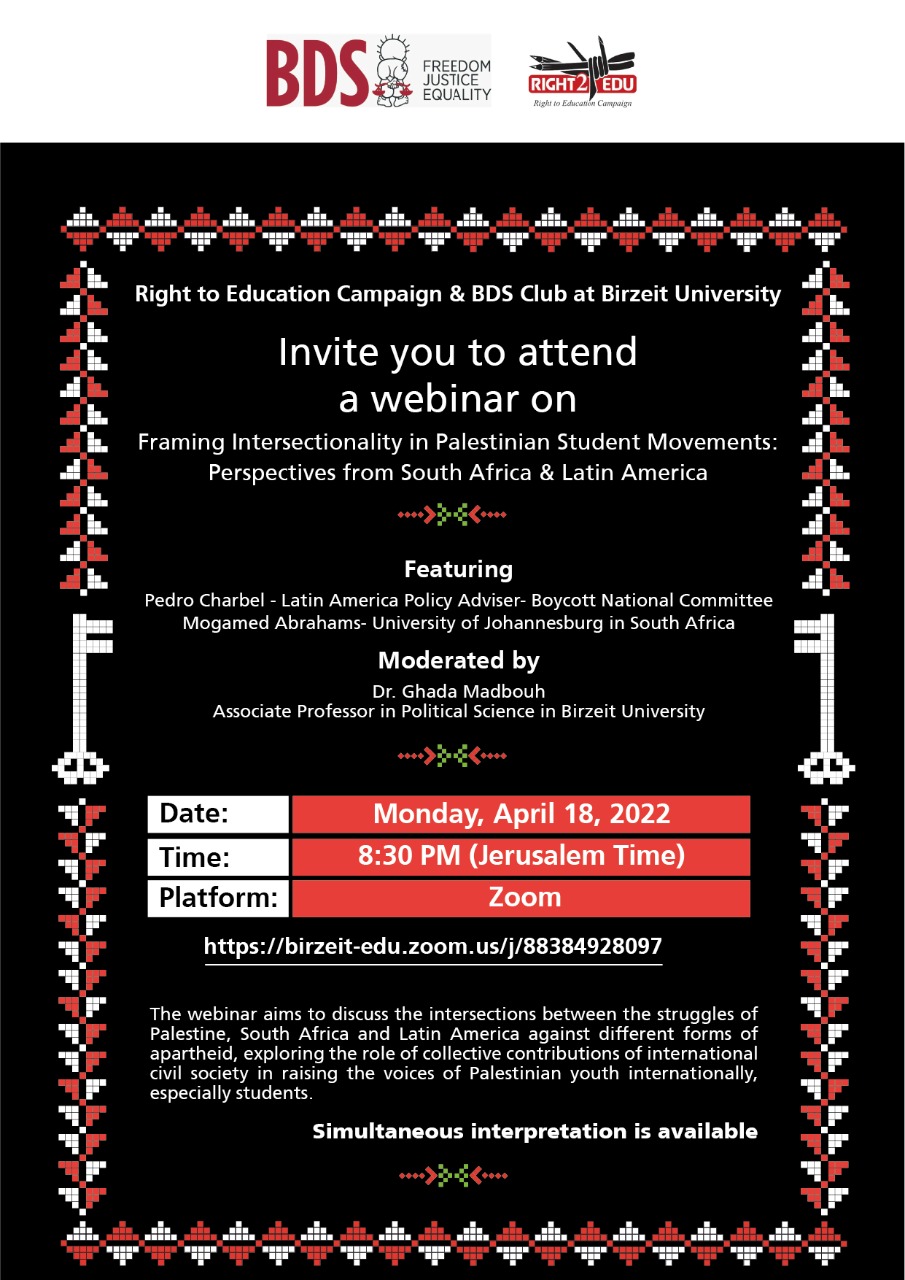The Right to Education Campaign invites you to attend a webinar on
"Framing Intersectionality in Palestinian Student Movements: Perspectives from South Africa and Latin America."
On Monday 18, 2022 at 8:30 PM (Jerusalem Time)
Speakers:
- Pedro Charbel, Palestinian BDS National Committee (BNC)’s Advocacy and Public Relations Officer for Latin America
Charbel will explain how Israeli military technology is controlling our daily lives. The speaker explains how Israel uses physical, military and cyber infrastructure to maintain a system of occupation and apartheid, by understanding how Israel integrate cybersecurity and other mechanisms to develop a system of colonialism that becomes a source of income for it as “a country.”
By sharing the experience of Latin America with Israeli militarism, this section provides an analysis. of Israel’s military/ cyber control through infrastructure (checkpoints, apartheid wall, and watchtowers to enforce demographic segregation, and deny peoples (including students) right to access to education); as well as discussing how Israeli technologies are meant to surveil human rights defenders and activists including students to repress their activism-monitoring the communication of Palestinians.
- Mogamed Abrahams, University of Johannesburg
This section introduces the history of the struggle of South Africans against colonialism and the system of apartheid. Then, it focuses on the role of students in fighting “the system”- apartheid- in spite of being confronted with heavily armed forces; and how they were able to change the country’s political landscape.
Moderator
Ghada Al Madbouh, assistant professor of political science- Birzeit Unviersity
Al Madbouh will explore the linkage between the South Africa struggle against apartheid, and Latin American fight against Israeli militarization, with Palestinian struggles, which often relies on extending the theory of intersectionality. That continues to be helpful in understanding how forms of discrimination and apartheid compare and contrast in different societies.


